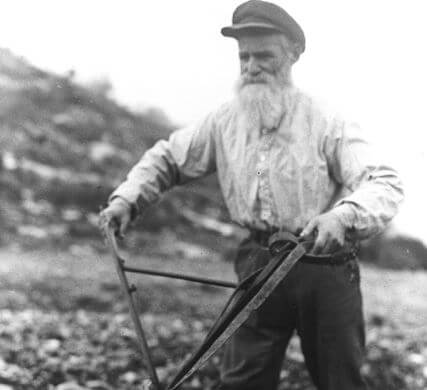
Viduy Ma’aser
There is an unusual mitzvah performed twice every seven years. It is called Viduy Ma’aser — literally, “Tithing Confession.” But this is not a confession in the usual sense. The individual ascends to Jerusalem and publicly declares that he has fulfilled all his obligations regarding terumot and ma’aserot — the tithes of agricultural produce that are distributed to kohanim, Levites, and the poor.
We do not find a viduy of this nature for any other mitzvah, where we formally announce that we have discharged our obligation. What is the purpose of this unusual declaration? And why is it performed so infrequently?
Appreciating Our Achievements
If we seek to continually improve ourselves, we need to be aware of the full extent of our moral and spiritual responsibilities, whether this involves helping others, refining our character traits, or performing acts of holiness. Even when we are dedicated to pursuing the path of goodness, we will still be far from completely fulfilling our obligations. This is the attitude of the truly righteous. They see themselves as lacking in good deeds and thoughtfulness. This critical self-image prevents them from becoming pretentious and arrogant, and graces them with a sincere modesty.
However, we must be careful not to be overly self-critical. We should not let this attitude deny us a sense of joy and satisfaction in our accomplishments. For this reason, the Torah teaches that we should rejoice in our good deeds. In the proper measure, this contentment bolsters our resolve to serve God, to perform mitzvot and acts of kindness. It is proper to feel a measure of satisfaction and well-being, and not always regard our actions as flawed and inadequate when we have acted correctly.
In short: we need set times for regular viduy, to admit our mistakes and faults, so that we may refine our character traits and improve our actions. But we also need set times for a positive viduy, to express our awareness that we have discharged our obligations and attained some of our spiritual goals.
This positive declaration, however, should be less frequent than our periodic soul-searching. We must avoid the sense of self-satisfaction that can lead to smugness and complacency. Thus Viduy Ma’aser is performed only twice in seven years.
Balanced Self-Image
Why did the Torah establish this positive viduy specifically with regard to terumot and ma’aserot? The beauty of tithing is that it encompasses all aspects of the Torah’s obligations. It contains both positive and negative commands: the obligation to distribute ma’aserot, as well as the prohibition not to eat untithed produce. It involves our responsibilities toward others (gifts to the Levites and the poor) as well as responsibilities toward God (the special holiness of terumah). And it reflects both obligations of the individual (the farmer’s obligation to tithe) and society as a whole (our support of the kohanim and their spiritual service for the nation).
Thus, tithing encompasses all of the foundations of our ethical responsibilities. Viduy Ma’aser teaches us that we should not judge ourselves too harshly, but strive for a balanced self-image, with the ability to derive satisfaction from our accomplishments. It allows us to see ourselves more clearly, and it gives us the strength to overcome negative traits and habits. While we are disappointed in our failings, we also take pride in our triumphs.
Despite the importance of this declaration, the Torah sought to impress a measure of modesty. Unlike the loud declaration of Bikkurim (first-fruits), Viduy Ma’aser is recited quietly (Sotah 32b). Furthermore, we demonstrate our reticence at praising ourselves by delaying the viduy until the very last moment – the end of the last day of the Passover holiday.
(Adapted from Ein Eyah vol. II, p. 405)





